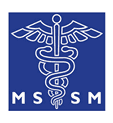
Although the Lap-Band® has been used by bariatric surgeons for more than a decade as a tool for severe obesity, there are still a number of myths surrounding the procedure. The following separates fact from fiction regarding some of the most common misconceptions.
Myth: Gastric band surgery is a quick fix.
Lap-Band® surgery is an opportunity rather than a quick fix. While gastric banding can help jump start weight loss, it is only successful if the patient is committed to making a life-long lifestyle change. This includes being willing to adopt a new way of eating and following a healthy diet plan.
Myth: Gastric band surgery is not an option for “morbidly obese” individuals.
Since Lap-Band® surgery has a lower mortality rate than other forms of bariatric surgery, it is often an appropriate option for individuals with a body mass index over 50 who are more likely to experience multiple health problems and post-surgical complications. It should be noted that these patients may lose weight at a slower rate than less obese patients.
Myth: Most patients undergoing gastric band surgery eventually regain the weight.
According to the American Society for Metabolic and Bariatric Surgery, most Lap-Band® patients are able to maintain a weight loss of more than 50 percent of their excess body weight on a long-term basis. The specific results that a patient experiences depend on their commitment to implementing the recommended diet and lifestyle changes.
Myth: The weight loss following gastric band surgery is too fast to be healthy.
Most patients lose an average of 2 to 3 pounds per week when following the doctor-recommended diet and exercise plan. This is well within the limits of what is considered healthy weight loss.
Myth: The metal in the adjustment port will cause problems with airport metal detectors and MRIs.
A Lap-Band® may be enough to set off a walk-through metal detector depending on the sensitivity of the machine. Hand-held detectors almost always pick up the presence of the Lap-Band®. It is a good idea for Lap-Band® patients to carry a card identifying them as having a Lap-Band® along with the name and phone number of their bariatric surgeon. It is safe for Lap-Band® patients to have MRIs.







